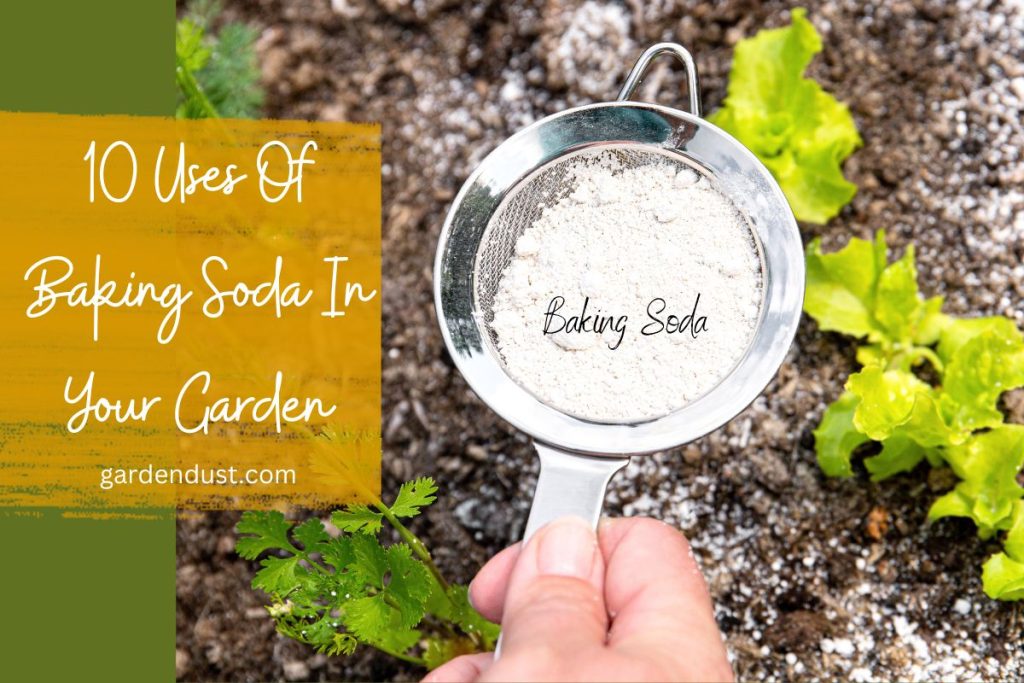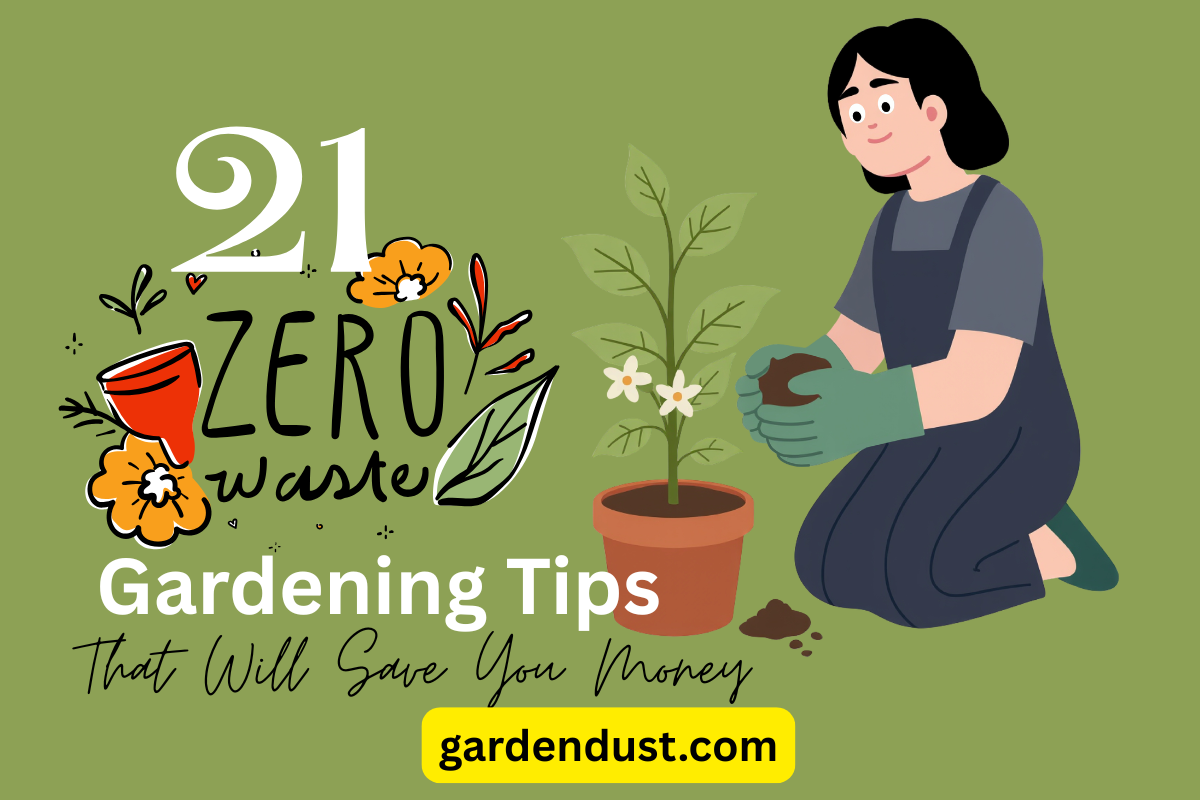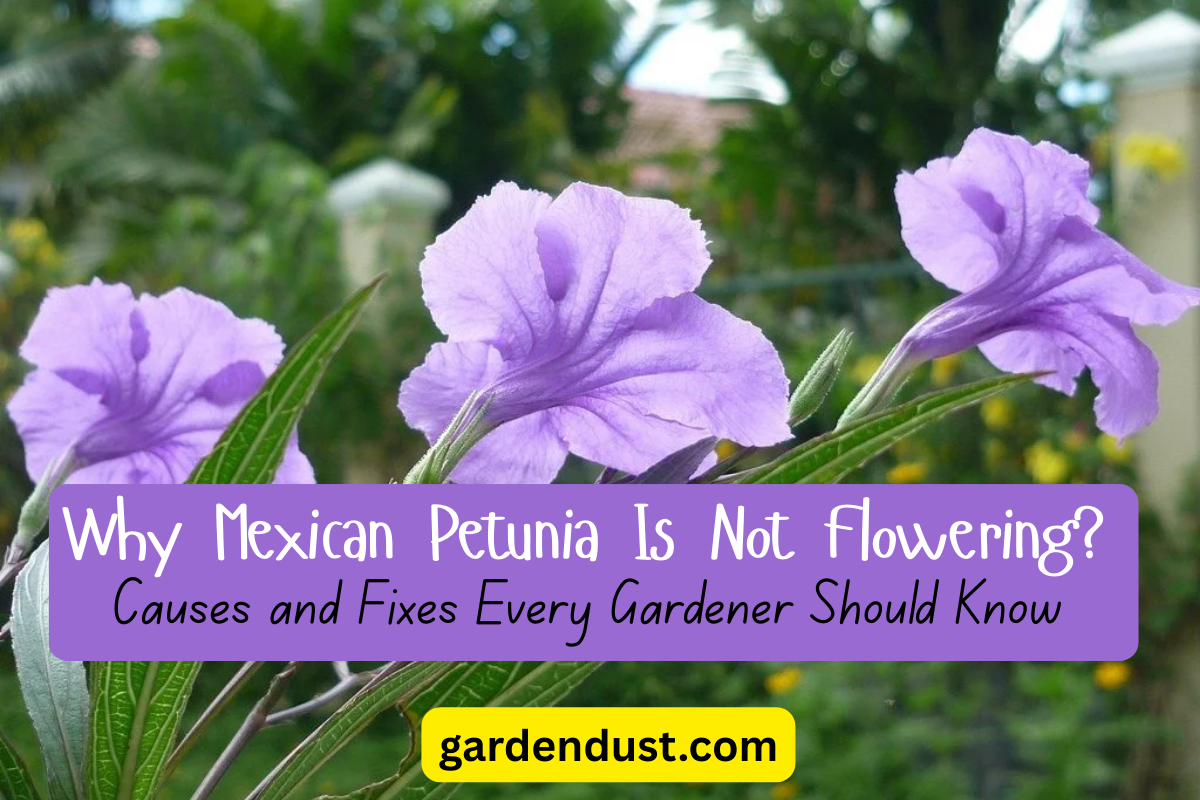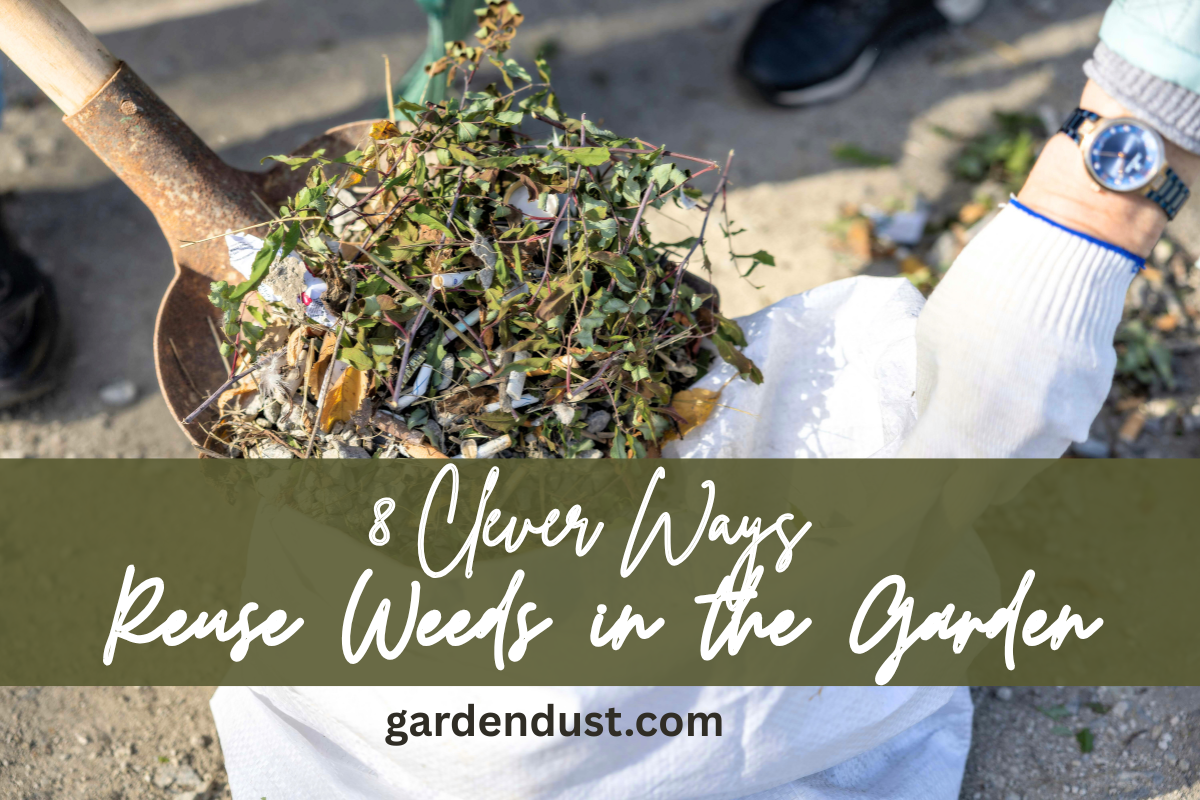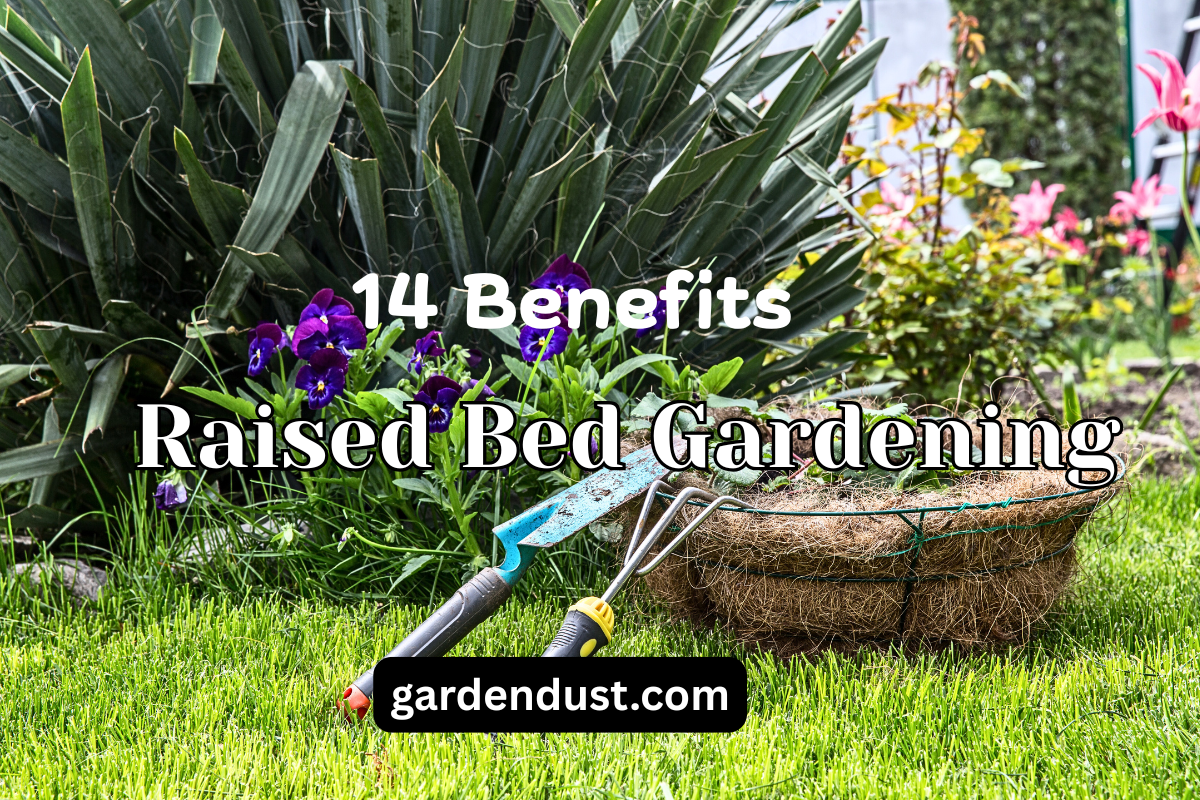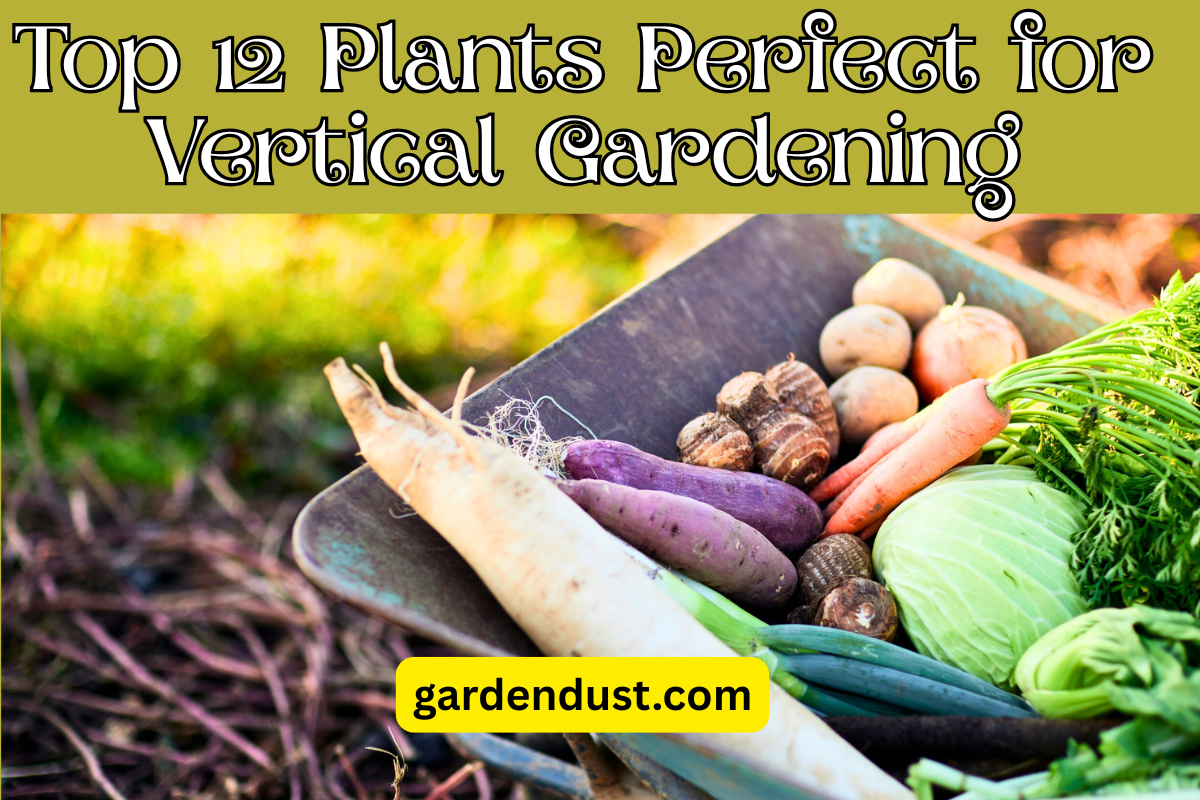Baking soda, a humble household staple, has proven to be a versatile and eco-friendly solution in various aspects of our lives. Beyond its applications in cooking and cleaning, baking soda can also be a game-changer in the realm of gardening. This readily available and affordable substance offers numerous benefits to your plants, soil, and overall garden health. In this article, we will explore 10 Uses Of Baking Soda In Your Garden. Let’s start..
1. Control Powdery Mildew:
One of the most common issues gardeners face is powdery mildew, a fungal infection that leaves a white powdery residue on leaves. Baking soda serves as an effective and natural remedy. Create a solution by mixing 1 tablespoon of baking soda, 1 teaspoon of liquid soap, and 1 gallon of water. Spray this mixture on affected plants every 7-14 days, especially during humid conditions, to prevent and control powdery mildew.
2. Neutralize Soil pH:
Soil pH is crucial for optimal plant growth, and some plants thrive in acidic while others prefer alkaline conditions. Baking soda, being alkaline, can be used to raise the pH of overly acidic soil. Test your soil with a pH kit, and if it’s too acidic, apply a small amount of baking soda to the soil. Keep in mind that this should be done gradually, monitoring the pH levels to avoid overcorrection.
3. Enhance Tomato Flavor:
Baking soda can contribute to the improved flavor of tomatoes by reducing acidity in the soil. Sprinkle a small amount of baking soda around the base of your tomato plants, ensuring it is well-mixed with the soil. This can lead to sweeter and less acidic tomatoes.
4. Deter Pests:
Unwanted pests can wreak havoc on your garden, but baking soda can act as a natural deterrent. Create a mixture of equal parts baking soda and flour, then dust the affected plants. This concoction disrupts the feeding patterns of pests like cabbage worms and caterpillars without causing harm to the plants.
5. Prevent and Treat Tomato Blossom End Rot:
Blossom end rot is a common issue in tomato plants, characterized by dark, sunken spots on the bottom of the fruit. Baking soda helps prevent and treat this condition by maintaining proper calcium levels in the soil. Mix 1 tablespoon of baking soda with 1 gallon of water and spray it on the affected plants, ensuring good coverage.
6. Boost Fertilizer Efficiency:
Baking soda can improve the efficiency of certain fertilizers by making nutrients more available to plants. When applied in conjunction with fertilizers, baking soda aids in the release of essential nutrients, promoting healthier and more robust plant growth. However, it’s crucial to monitor the soil and plant response to avoid over-fertilization.
READ ALSO:-Why Pollinators Are Important
7. Weed Control:
Baking soda can be an eco-friendly and safe alternative to chemical weed killers. Sprinkle baking soda on weeds, making sure to cover them thoroughly. This disrupts the growth of weeds and helps control their spread. Repeat the application as needed, especially after rainfall.
8. Extend the Life of Cut Flowers:
Baking soda can be a secret weapon for keeping cut flowers fresh for a more extended period. Add a teaspoon of baking soda to the water in your vase to maintain the water’s pH balance. This helps slow down the growth of bacteria and fungi, keeping your floral arrangements vibrant for a more extended period.
9. Clean Garden Tools:
Maintaining clean and well-maintained garden tools is essential for preventing the spread of diseases between plants. Baking soda’s abrasive nature makes it an excellent cleaner for removing dirt, grime, and rust from your gardening tools. Create a paste using baking soda and water, scrub your tools, and rinse thoroughly.
10. Repel Slugs and Snails:
Slugs and snails can be a menace in the garden, damaging plants and leaving a trail of destruction. Baking soda can be used to create a barrier that repels these slimy invaders. Sprinkle a line of baking soda around vulnerable plants to discourage slugs and snails from approaching.
The uses of baking soda in the garden are diverse and impactful. From controlling pests to enhancing soil health, this common household item can be a valuable asset for any gardener. By incorporating these baking soda applications into your gardening routine, you not only promote a healthier and more productive garden but also do so in an environmentally friendly manner. Embrace the power of baking soda and watch your garden flourish with vitality and abundance. Happy Gardening….

